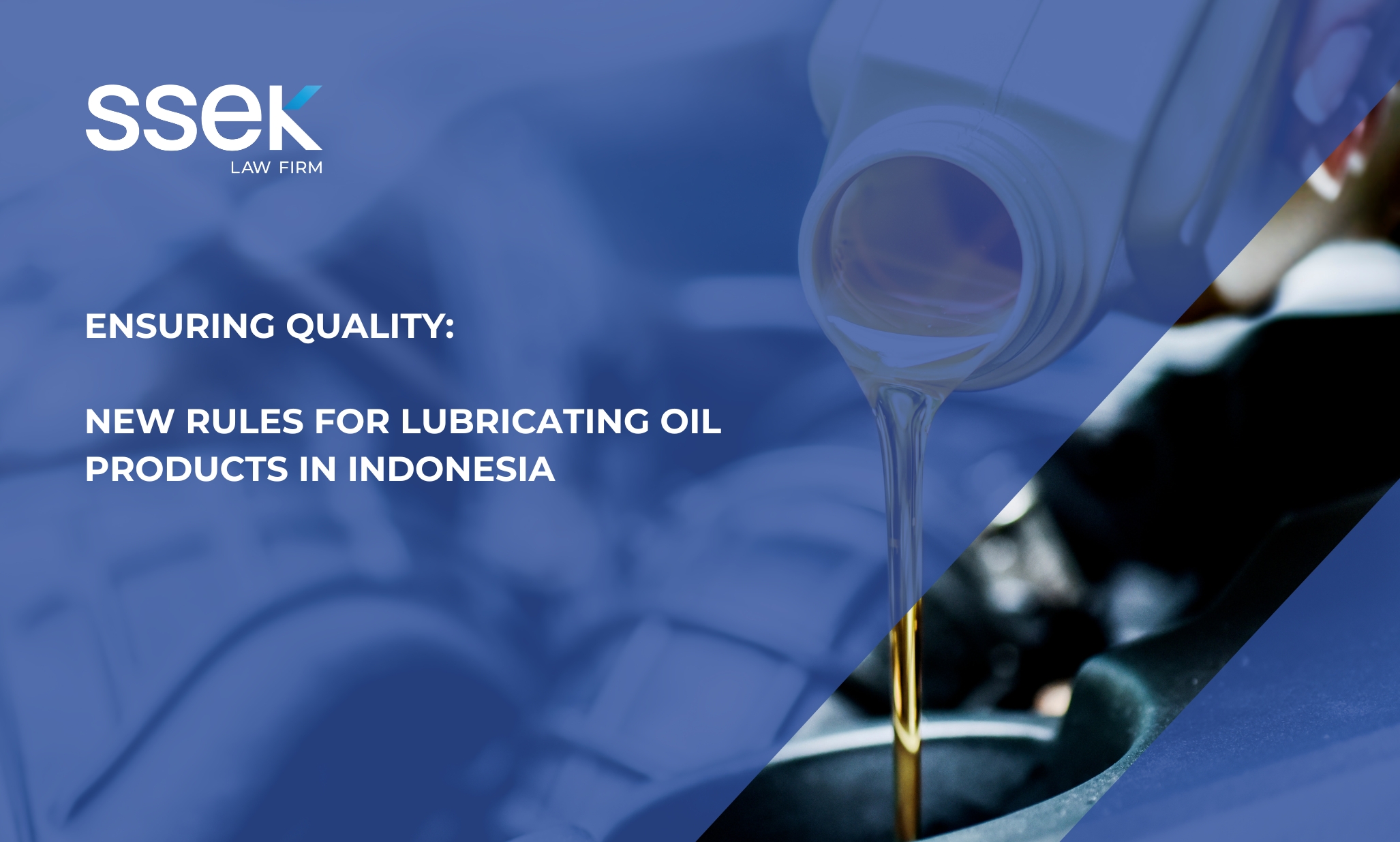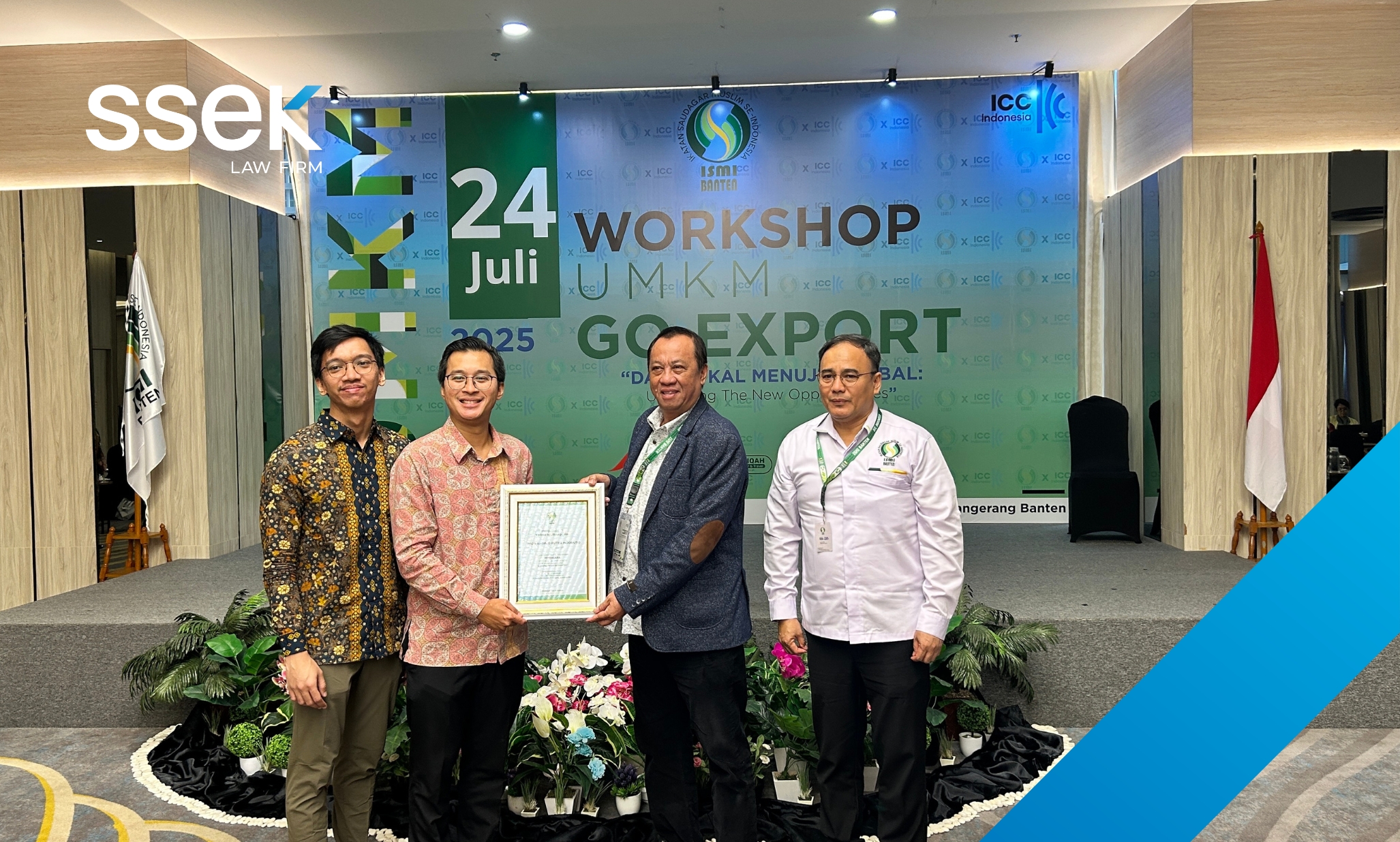


In an effort to strengthen product quality and consumer protection, the Indonesian Ministry of Industry has issued Ministry of Industry Regulation No. 8 of 2025 on the Mandatory Implementation of the Indonesian National Standard (SNI) for Lubricating Oil for Motor Vehicles (“New Regulation”).
It replaces Ministry of Industry Regulation No. 25 of 2018 (“MoI Reg 25/2018”) and sets stricter rules for both domestic manufacturers and importers of lubricating oil sold in Indonesia.
What the New Regulation Covers
Under the new rules, several specific SNI standards must be followed by any business that produces, imports or distributes lubricating oil in Indonesia. These standards apply to oil used in four-stroke and two-stroke engines, diesel engines, gearboxes and automatic transmissions.
The regulation applies to both local and imported products that fall under certain tariff codes.
Who Must Comply
Business actors that manufacture, import, or distribute lubricating oil in Indonesia are required to comply with the mandatory SNI requirements. Failure to do so may result in sanctions, including criminal penalties, and the revocation of your SNI Certificate or your authorization to use the SNI Mark (Surat Persetujuan Penggunaan Tanda SNI or “SPPT SNI”).
Exemptions from Mandatory SNI
Unlike the previous regulation, the New Regulation tightens the list of exemptions. Lubricating oils used for research and development or laboratory testing may be exempt, but only in limited quantities and under strict conditions. Notably, sample lubricants used for research and development are expressly prohibited from being used for market testing.
SNI Certificate
To prove compliance, companies must obtain an SNI Certificate through a Type 5 certification process, which includes:
- Audit of the production process and the company’s ISO 9001:2015 quality management system; and
- Testing to confirm the product meets the SNI standard for its type.
The application for an SNI Certificate must be submitted by an industrial company or a foreign manufacturer through its official representative electronically through the SIINas system, the government’s online licensing platform. The SNI Certificate is valid for five years from the date of its issuance. The SNI certification process is set out in detail in Appendix I of the New Regulation.
Mandatory Use of SNI Mark and Electronic Mark
In addition to the SNI Certificate, companies must apply for SPPT SNI, which grants the right to use the official SNI Mark and an electronic mark on their product packaging. The SPPT SNI can be issued to domestic industrial companies or to official representatives acting on behalf of foreign manufacturers. It is valid for one year from the date of issuance (shorter than the four years under the previous regulation). However, the approval and issuance process has been reduced from 41 to 5 working days.
The new electronic mark complements the physical SNI Mark and includes a digital link to product certification data.
Conclusion
The issuance of the New Regulation represents a significant regulatory step in accommodating advancements in digital administration by requiring all applications for SNI certification be submitted electronically through SIINas.
The New Regulation also introduces the use of an electronic mark as a modern compliance tool. This electronic mark complements the physical SNI Mark and enhances transparency and traceability in lubricating oil products distributed in Indonesia.
This publication is intended for informational purposes only and does not constitute legal advice. Any reliance on the material contained herein is at the user’s own risk. All SSEK publications are copyrighted and may not be reproduced without the express written consent of SSEK.









